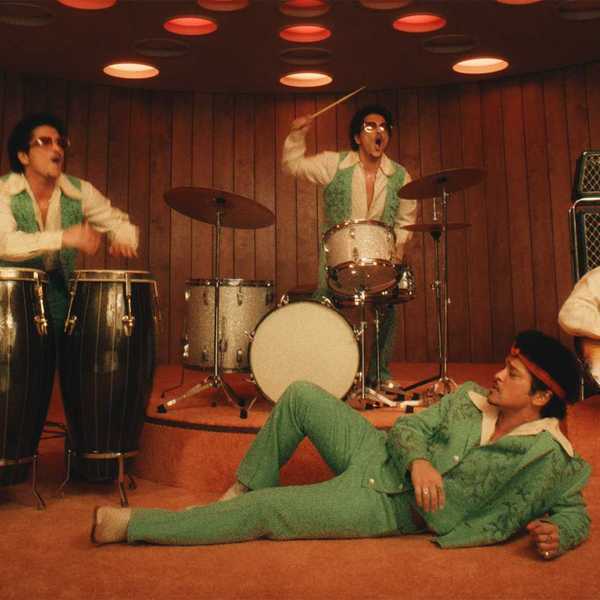Denise Donlon: Veteran Blazes Another New Trail Just by Gaining Award
When Canuck media superstar Denise Donlon accepts the Walt Grealis Special Achievement Award in Vancouver next month during the Juno Awards festivities, there will be widespread (probably universal) acknowledgement that this one hit the bullseye.

By Kim Hughes
When Canuck media superstar Denise Donlon accepts the Walt Grealis Special Achievement Award in Vancouver next month during the Juno Awards festivities, there will be widespread (probably universal) acknowledgement that this one hit the bullseye. Few individuals have “contributed to the growth and development of the Canadian music industry” more demonstrably than Donlon, as a broadcaster, record company and radio exec, memoirist and all-around influencer.
What may be less remarked upon is that Donlon is only the second woman, after radio trailblazer Rosalie Trombley, to claim the accolade since 1984. If you’re counting, that’s two awards given to women out of a total of 34, in 2016 and now in 2018. Which means… no woman powerfully impacted the industry in the 1980s, 90s or 2000s?
OK, so that track record reflects the previously accepted — now challenged and changing — cocks-ahoy mentality of the Canadian music industry and industries of all stripes globally. But it’s a reminder that even a powerhouse like Donlon, who was blazing the trail for which she is now being fêted during the 1980s, 90s or 2000s, gets nothing for free.
Or perhaps it’s what Donlon calls the Ginger Rogers/Fred Astaire parable: in business, women have to do everything their male cohorts do but do it backwards while wearing high heels. “When I give advice to young women entering broadcast, I tell them they still need to overachieve and be exceptional,” Donlon confirms. “Luckily, women can be exceptional.”
Indeed. Witness Donlon’s highly distinguished and decorated career, which brings us back to the Walt Grealis Special Achievement Award. Not to unduly yoke her with politics (she deserves this award, after all) but even the unfailingly genial Donlon allows that genuine, proactive gender parity in the workplace — even an ostensibly progressive workplace like the music biz — is ripe for a 21st-century upgrade.
“On one hand, it’s wonderful to be only the second woman inducted after Rosalie Trombley,” Donlon says. “Her influence was recorded in song (see Bob Seger's ‘Rosalie’), so that’s pretty magnificent. But I hope more women are inducted as we go forward. Maybe this is just the beginning of an opportunity to applaud more women in the business.”
One suspects Donlon will be watching closely and keeping score in that regard. She was on-hand when CARAS President and CEO Allan Reid declared, during a recent press conference announcing the 2018 Juno Award nominees, that “There are very important conversations happening in our world right now around gender equality and sexual harassment. It is critical that we work collectively as an industry to support a larger representation of women in music and encourage a culture that nurtures their participation and success.”
Donlon will be holding that sentiment up to the light at Vancouver’s Parq Hotel March 24 (11 am, Ballroom D) when she delivers a Juno Week keynote, and moderates a panel discussion about “being fearless and female in the music industry, discussing inclusivity, the current industry landscape, challenges and paths to success,” according to an email from a publicist representing the Junos.
Confirmed panelists so far include Tegan and Sara’s Tegan, Warner Chappell Music Canada GM Vivian Barclay, Universal Music Canada exec VP and GM Kristen Burke, Women in Music Canada founder/chair Samantha Slattery, and CARAS/The Juno Awards & MusiCounts COO Jackie Dean.
“The #MeToo movement has really put a spotlight on how women are represented in nearly every field,” Donlon says. “I can’t speak specifically to numbers in the Canadian music business yet. But look at overall numbers, like the number of female CEOs on the Forbes 500 list. It’s 6.4 percent. At the TSX, out of 677 companies, only 14.5 percent of board seats are women. And 45 percent of TSX companies still don’t have a single woman on their board at all.
“In politics on an interparliamentary global scale, Canada is at number 62 behind Vietnam. So, it’s a market failure. And at the end of the day, change won’t happen because we wish it. It requires measurable goals and policies to hire, mentor, support and promote women. CARAS has four more women elected to serve on their board currently, for a total of five, so they are making steps. What I hope will come out of this panel is a moment where we can put together a list of pragmatic steps that the industry can take to ensure greater representation.”
















